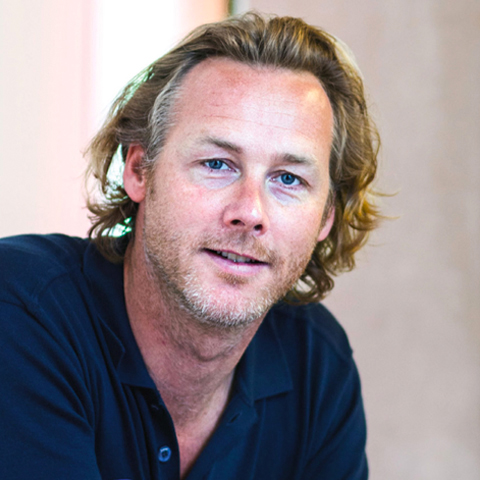




Wico Mulder, is a pediatrician and ambassador for @ease. He has many conversations with young people and is interested in the relationship between body and mind. Especially, the connection between experienced feelings and physical complaints. In this blog he will share his thoughts about this topic.

Research shows that most young people in the Netherlands grow up healthy and safe. Yet we see that more and more young people feel anxious and stressed due to, for example, their home situation, a traumatic experience, pressure to perform at school and now also due to Covid-19 and the impact of all government measures. The pressure we feel to meet the social norms of happiness, success and the pursuit of the "ideal picture" has been normalized. However, it is healthier to listen to your body, find balance and discover your own individual path. This takes courage, energy, perseverance and sometimes a listening ear.
Being comfortable in your own skin, walking on your tiptoes, having a lump in your throat or having butterflies in your stomach: you have probably heard these expressions before. What they have in common is that they speak the language of our body; they connect the head with our heart and our stomach; our thinking with our feeling. Becoming aware of the relationship between our physical body and our brain is of great value to your personal (mental) health. When I was still working as a pediatrician, I spoke with many youngsters who had an increased (and long-term) absenteeism from school. In the first instance, the reason was often a physical complaint, such as a stomach ache, headache or fatigue. The conversation often revealed that someone was not "comfortable in his own skin" and had been (un)consciously walking around with unpleasant feelings and thoughts for a long time. Poor sleep, no appetite and less or no interest in sports, social contacts or school are the result.
Many young people find it difficult to talk about their feelings or are not very aware of their emotions. Studying or working excessively, undertaking a lot of activities with friends or looking for distraction in social media, smoking, alcohol or drugs are well-known defense mechanisms to avoid feeling painful emotions. However, hiding emotional pain or not being aware of it can be a cause of persistent physical complaints. That is why discussing your emotions - for example, the fear of not being good enough, anger due to injustice or grief due to rejection - is extremely important.
Young people do not categorize their experienced complaints and problems as worrisome in the beginning, even though they may form great risks. Sometimes they go on for far too long, until they are mentally or physically exhausted and professional help has become a necessity. The resilience of these young people can thereby be a pitfall! While growing up, the emotional problems (sadness, fear and panic) are increasing strongly and these have direct consequences in the present and can be damaging for a healthy physical, mental and emotional development.
Discussing and giving tips about a healthy lifestyle is supportive in creating recovery and a balanced life. Insight and knowledge about, for example, relaxation, sleep, healthy food, sports and exercise, as well as the role and impact of smoking, alcohol, gaming and social media, is of great added value because they have a major effect on your recovery. Self-reliance and taking responsibility with regard to a healthy lifestyle are also part of growing up and living.
Preventing problems from getting worse and preventing young people from needing long-term professional help is essential. It is important that we really see young people, hear what is going on by listening carefully and asking questions, so that youngster feel truly heard and understood. Paying attention to the deeper and more complicated questions, fundamental problems with which someone is struggling, but also paying attention to what is going well or what wishes and dreams (meaning) there are. Such an attitude realizes connection with the youngster, it makes a difference in their lives by reduces the chance of deterioration and promotes recovery.
That's why I think @ease is so cool and important. I am pleased that young people in more and more places in the Netherlands can walk in for a real conversation, free and anonymously at @ease (or online via a chat conversation). It works! For an @ease nearby, visit www.ease.nl and while you are still on the internet, take a look at www.jongerenhulponline.nl and www.ziemijnu.nl.
Wico Mulder
paediatrician Adolescents / Doctor Society & Health
Ambassador @ease